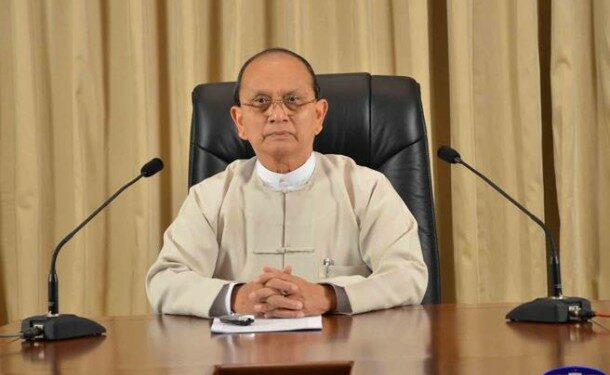RANGOON — President Thein Sein’s government is reintroducing the post of permanent secretary, bringing back the old position for the highest civil servant in a ministry, a ruling party parliamentarian said.
Hla Swe, a Union Solidarity and Development Party Upper House lawmaker, said the government this month appointed 36 officials to the position of permanent secretary, adding that most of those appointed were previously director generals in their respective ministries.
The permanent secretary is the most senior civil servant position and serves directly under the minister, which is a political appointment. Burma’s 1950s government of Prime Minister U Nu employed permanent secretaries, but Gen. Ne Win abolished the post after staging a military coup in 1962.
The permanent secretary will receive a 700,000 kyats monthly salary (about US$700), up from the director general’s salary of 500,000 kyats, according to Hla Swe.
The lawmaker said Parliament had not objected to reintroducing the executive branch positions, even though they are more powerful than the post of director general.
Nyan Win, a spokesperson of the National League for Democracy, said the opposition party had no problem with bringing back the post. “We have no reason to argue against these appointments, a permanent secretary is just a government employee,” he said.
Some political analysts, however, believe the government might have reintroduced the permanent secretary post in order to place old regime-era officials loyal to the USDP and the army in more powerful civil servant positions.
Such a move, they said, could strengthen the USDP and army’s hold over the government administration in case of an opposition victory in the general elections scheduled for November.
“I am not surprised; it is a precautionary measure before the election, just to make sure the same power structure remains in place even if the NLD does win the election,” said Bertil Lintner, a veteran journalist who wrote several books on Burma.
Yan Myo Thein, an independent political analyst, said, “I don’t think there is sufficient reason to quickly appoint permanent secretaries right now. What I believe is that government is trying to keep the military regime mechanisms strong, even after the election.”
“Most high-ranking officials in government ministries came from the military; most DGs [director generals] have a military background. These people will become more important [through the creation of the permanent secretary post] even if the next government is a purely civilian government,” he said.
The Irrawaddy was unable to immediately confirm the names of most permanent secretary appointments.
Local media outlet DVB reported that Tint Swe, director general of state broadcaster MRTV, was promoted to permanent secretary at the Ministry of Information. Under the former military regime, Tint Swe held the position of deputy director at the information and communications department and he was also director of the censorship board, which was abolished in 2012 by Thein Sein’s nominally-civilian government.
Toe Aung Myint, the current director general of the Commerce Ministry’s department of trade promotion, was promoted to permanent secretary, said Yan Naing Tun, a deputy director general at the ministry. Dr. Zaw Wai Soe was reportedly appointed as permanent secretary at the Ministry of Health.
Myint Kyaw, secretary of the Myanmar Journalists’ Network, said he was not concerned over the appointment of the junta-era censor to permanent secretary. “I don’t think the media policy will significantly change because of the new appointment of U Tint Swe to permanent secretary since the minister and the government will still control everything,” he said.

















